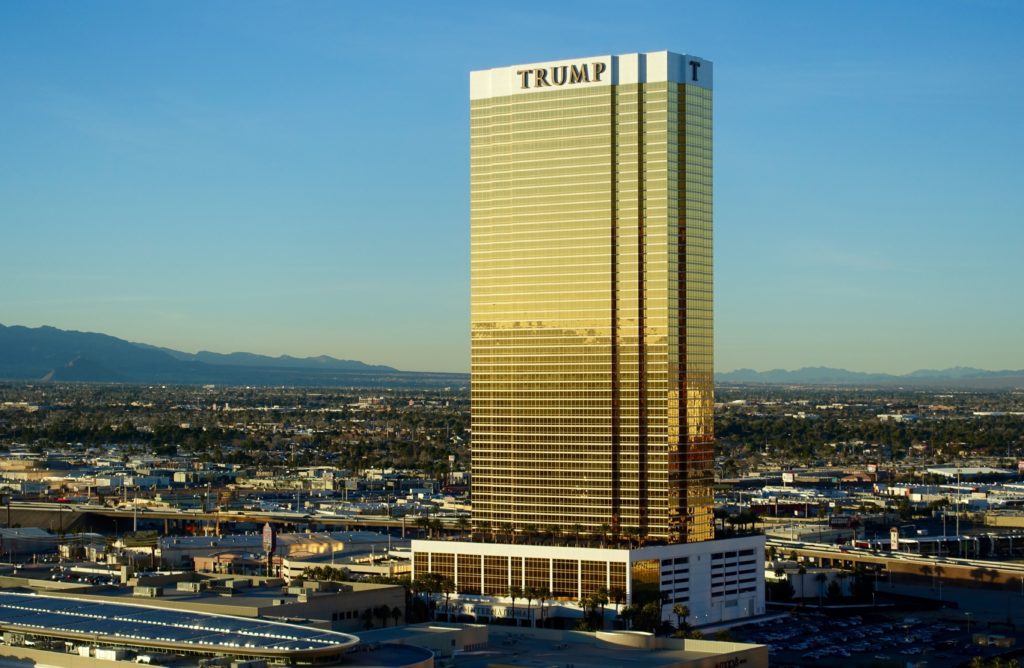Civil damages and civic damages

Donald Trump now has debts no honest man could pay:
A seven-figure verdict, an eight-figure verdict and, now, a nine-figure verdict.
Donald Trump has been hit with all three in the past nine months, with Friday’s $354 million penalty for New York business fraud by far the most massive.
He is now on the hook for over $440 million in civil judgments as he heads toward the Republican nomination — and as he prepares for one or more criminal trials this year.
Those criminal cases could put him in jail. And in the meantime, his escalating troubles in his civil cases are packing a devastating financial punch.
Even for a man who claims to be a billionaire, $440 million is a potentially crippling amount of cash to turn over. Can Trump afford the judgments? When does he have to pay them? And what happens if he says he can’t — or if he outright refuses?
[…]
In the civil fraud case, which is in New York state court, if Trump can’t post the funds or get a bond, then the judgment would take effect immediately and a sheriff could begin seizing Trump’s assets.
The rules are slightly different in federal court, which is the venue for the $83.3 million judgment that Trump owes for defaming the writer E. Jean Carroll after she accused him of raping her. (He also owes Carroll an additional $5 million from a separate verdict last year.) Carroll could pursue post-judgment discovery under the jurisdiction of the judge who oversaw the trial. Through that process, the judge could order Trump to produce his bank account records, place liens or garnish his wages.
“I think he’s going to have to pay. And whether it requires him to sell or to put a lien on something to get a loan, that’s his problem, not ours. He’s going to pay,” Carroll’s attorney Roberta Kaplan said on CNN last month.
The judge, Kaplan added, will use “judgment enforcement mechanisms” to “make sure that he pays.”
If Trump truly can’t afford the judgments, he would have to declare bankruptcy.
On paper, he can’t use campaign funds to pay the civil judgments the way he’s used them to pay his lawyers, although the enforcement of campaign finance laws is notoriously lax and he presumably doesn’t actually care about whether the RNC retains its non-profit status.
The greater danger is that he will be even more inclined to pursue his tradition of accepting emmouluments in exchange for favors should he become president again:
But Trump isn’t just one of the country’s richest men, with an estimated net worth in the low billions; he’s also running to serve a second term as president of the United States. And for any candidate for public office — let alone the presidency — being cash-strapped while owing such significant amounts of money could be a serious liability.
“It’s pretty scary from an ethics perspective,” said Virginia Canter, the chief ethics counsel at the Citizens for Responsibility and Ethics in Washington, a nonpartisan watchdog group that has chronicled Trump’s abuses of power and filed lawsuits against him.
You don’t have to look far to find the reasons why. Trump’s first term was riddled with conflicts of interest, and that’s in no small part because of his financial well-being (or lack thereof, depending on how you look at it). At the time that he tried to overturn the 2020 election, he was hundreds of millions of dollars in debt, largely stemming from loans to help rehabilitate his struggling businesses, and most of which would be coming due over the subsequent four years. Throughout his presidency, he refused to divest from his businesses, which made millions of dollars in revenue from taxpayers and continued to do work with other countries while he was in office — a practice he indicated he would repeat in a second term.
Have I mentioned that Joe Biden is three and half years older than Trump yet?


